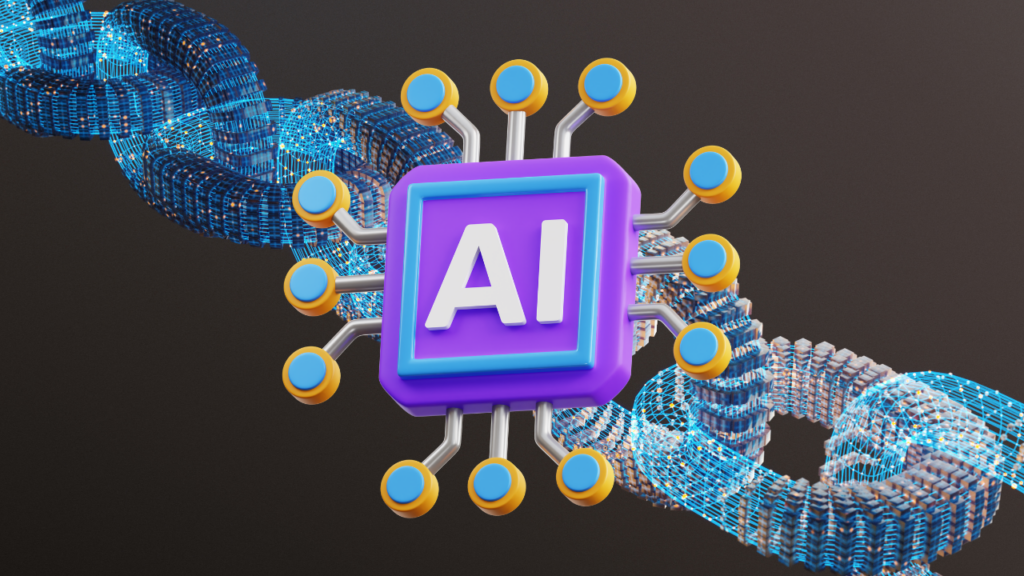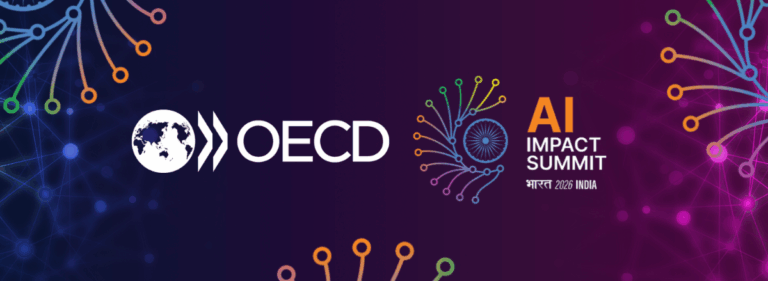A look at AI and Blockchain governance and an interview with CZ
Part two of a four-part series on web3, AI and blockchain

Welcome to the joint Blockchain and AI vlog from members of the OECD’s AI Policy Observatory and the OECD’s Blockchain Expert Board. The groups were central contributors to the content of the OECD Recommendation on Blockchain and DLT as well as the OECD AI Policy Principles, both adopted formally by OECD countries and beyond.
The AI Principles and Blockchain Recommendations are among the world’s most important web3 policy framing documents. They represent the first binding intergovernmental legal standards of how public and private actors can work to create future-ready, cohesive and compliant global systems.
Our guest for part two of this series needs little introduction. He is Changpeng Zhao, the founder and CEO of Binance, informally known as CZ. In our interview, we discuss many of the regulatory issues surrounding both AI and Blockchain, with an evident focus on the digital asset space.
Governance initiatives around AI and Blockchain address how these technologies are developed and regulated. It is important to note that the speed at which both these technologies are being developed and deployed far outpace what legislators and regulators can tackle.
AI governance initiatives
AI governance efforts often focus on concerns about the ethical use of the technology and its potential negative impact on society. But there is still a massive need for policy makers to better understand AI technologies and how they can serve the greater good, which the Global Partnership on AI is tackling by publishing policy recommendations and position papers. Several ethical initiatives are exploring the overlap between AI and Blockchain, including Orbu, a future-casting AI prediction market for creating ethical AI solutions.
ALSO READ:
What is web3? Part 1 of a three-part vlog on the OECD and web3
Initiatives for responsible AI development and use
OECD AI Principles: The Organisation for Economic Co-operation and Development (OECD) has developed a set of principles for the responsible development and use of AI, known as the “OECD AI Principles”. These principles are designed to promote transparency, accountability, and human-centricity in the development and use of AI. G20 countries used these principles as a basis for their own, also adopted in 2019.
Global Partnership on AI (GPAI): GPAI is a multi-stakeholder initiative which aims to advance the responsible development and use of AI. The partnership brings together governments, civil society organizations, academics, and the private sector to collaborate on AI governance, research, and capacity-building.
IEEE Global Initiative on Ethics of Autonomous and Intelligent Systems: This initiative was created by the Institute of Electrical and Electronics Engineers (IEEE) to promote responsible development and use of AI. It provides guidelines for the ethical design, development, deployment, and use of AI systems.
Partnership on AI: This is a global organisation that brings together mainly leading tech companies, academics, and researchers to address the ethical and societal implications of AI. It provides guidelines and best practices for the responsible development and use of AI.
DAOs: Blockchain governance initiatives for governments and corporations
Blockchain governance, on the other hand, deals with issues such as scalability, security, and the management of decentralised networks. Initiatives such as the Web3 Governance Forum and the Decentralized Autonomous Organization (DAO) address these issues by promoting decentralised decision-making and community-based governance.
Decentralised Autonomous Organizations (DAOs) are digital organisations run by rules encoded on a Blockchain. They are decentralised, meaning that they are not controlled by any single individual or entity but rather by a group of stakeholders who collectively make decisions about the organisation. They are autonomous, meaning that once the rules are set, the organisation runs itself without the need for human intervention.
DAOs provide a new model for decentralised decision-making and governance. In a traditional organisation, decisions are made by a small group of individuals or a board of directors. In a DAO, decisions are made by those who hold the network’s native cryptocurrency or tokens, allowing for a decentralised decision-making process.
For governments, DAOs may be an alternative way to manage public services and resources, such as through decentralized voting systems or digital identities. They may also provide a way to increase transparency and accountability in government decision-making.
For corporations, DAOs may provide a way to decentralize decision-making and increase shareholder engagement. They may also provide a way to increase transparency and accountability in corporate decision-making.
DAOs are still a relatively new concept whose full potential has yet to be fully explored. However, they have the potential to provide a new model for decentralized decision-making and governance for a wide range of industries and organizations.
The OECD Recommendation on Blockchain and other DLT
The OECD Recommendation on Blockchain and other DLT provides guidance for everyone in the Blockchain ecosystem, with governments, industry, academia, and civil society being the main actors. Responding to the increase in use and rapid development of the technology and its applications, the Recommendation provide a clear and coherent policy framework for responsible Blockchain innovation and adoption to prevent and mitigate risks, while preserving incentives to innovate, collaborate and compete. While international policy standards have thus far focussed on financial market issues, this Recommendation recognises the wider impacts of and uses for the technology, and is the first cross-sectoral international policy standard for Blockchain. The Recommendation addresses six key issues relevant to all Blockchain actors: Compliance and CoherenceGovernance, Transparency, and AccountabilityInteroperabilityDigital Security and PrivacyEducation and Skills DevelopmentEnvironmental impact It also contains policy recommendations for governments establishing or implementing policy measures related to Blockchain innovation and adoption. They take into account the importance of technology neutrality.
Here are the essential points from the Recommendations’ guidance for governments:
- Develop co-ordinated policy approaches concerning Blockchain
- Foster investment in Blockchain research and development
- Strive to build human capacity on Blockchain
- Support an enabling policy environment for Blockchain
- Co-operate internationally on Blockchain
More governance initiatives for Blockchain and other DLT
The Global Blockchain Business Council (GBBC): the largest industry association for the Blockchain technology and digital assets community. Launched in Davos in 2017, GBBC is a Swiss-based non-profit with over 500 institutional members and 230 Ambassadors across 108 jurisdictions and disciplines. The organisation is dedicated to furthering the adoption of Blockchain technology by convening regulators, business leaders, and global changemakers to foster collaboration and advance dialogue to create more secure, equitable, and functional societies.
Blockchain Association: A leading non-profit organisation dedicated to promoting a pro-innovation policy environment for the digital asset economy. Works with members to educate policy makers about Blockchain technology and its ability to pave the way for a more secure, competitive, and consumer-friendly digital marketplace. Itsmission is to forge consensus on key policy solutions among regulators, lawmakers, and the public so that the digital asset economy can flourish in the United States.
Blockchain Governance Initiative (BGI) provides an open and neutral sphere for all stakeholders to deepen common understanding and to collaborate to address issues they face in order to attain sustainable development of the Blockchain community.
The Global Blockchain Forum (GBF): This is a global initiative that aims to create industry best practices and international regulatory interoperability. Founding members include CDC, the United Kingdom Digital Currency Association, the Association of Crypto-Currency Enterprises and Startups, Singapore (ACCESS) and the Australian Digital Currency Commerce Association (ADCCA).
The Chamber of Digital Commerce promotes the acceptance and use of digital assets and Blockchain-based technologies. Through education and advocacy – working closely with policy makers, regulatory agencies and industry. The Chamber aims to develop an environment that fosters innovation, jobs and investment.
International Association for Trusted Blockchain Applications (INATBA) connects public and private entities and promotes global Blockchain adoption across diverse fields such as law, finance and education.
AI and Blockchain governance are crucial because they address the potential negative impacts on society and promote responsible development and use. The obvious cases of malfeasance present in the likes of Luna, FTX, Celsius (and many others) could have been mitigated – if not avoided completely – with sensible regulations and informed regulators. The dangers of unregulated AI are far more subtle and potentially worse. In our next post, we will address these challenges with another surprise guest interviewee.


































